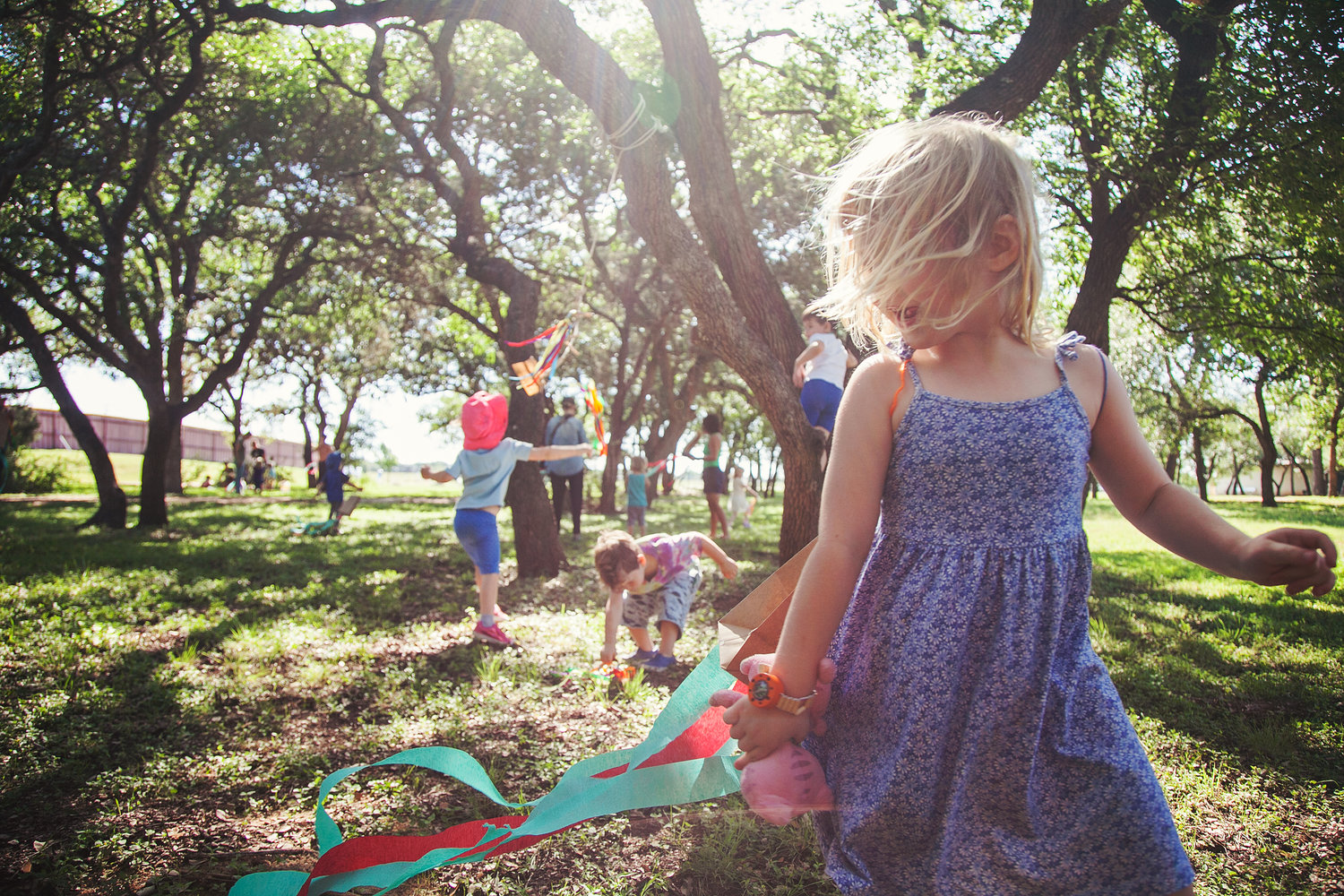Have you ever stopped to think about why we celebrate birthdays, anniversaries and holidays? It’s not just a festive thing to do, it’s a way to stop, cherish and reaffirm the things that we value in our lives. We show how much we care about our families when we celebrate their birthdays; we underline how important our relationships are when we celebrate anniversaries; and when we celebrate holidays and other significant days -- such as Earth Day -- we demonstrate to those around us, like our kids, where our values lie.
Celebrations are in fact a brilliant and joyful way to teach your children what you believe in. And when you incorporate nature and outdoor play into celebrations you’re letting your family know that the natural world, and connecting with it, is important—so important it is associated with the things you cherish most.
Also, celebrations spark joy. And joy facilitates learning. Win, win. Celebrations include sweet pleasures like food, music, games and fun, helping us hardcode an association with pleasure and joy and whatever we are celebrating. Plus, we know that when nature and play are involved, our children engage all the more in the rituals and celebrations. Win, win.
But celebrations need not be reserved for major holidays, especially outdoor celebrations. The greatest lessons in life are learned through what is repeatedly emphasized in our lives. A collection of thousands of small celebrations builds the habit to celebrate and in turn hard codes virtues and values that help our children develop the way they see and experience their worlds.
Nancy Rosenow, one of our outdoor heroes, believes that when we celebrate all the little things, and we do so often, children develop a deeply ingrained sense of gratitude. “When we start finding reasons to celebrate it shifts our focus on gratitude; our children pick up on that and they’ll follow suit,” shared Rosenow.
There is a substantial amount of research that supports the many benefits of incorporating a gratitude practice into a child’s life, as well as our own lives. When we allow ourselves to celebrate the flowers coming into bloom, the sun shining on our gardens or even the first snowfall, we are essentially expressing how grateful we are for the wonders found in nature. And we’re passing that gratitude practice on to our children.
“They’ll start saying things like, ‘we saw our first butterfly, let’s have a celebration,’ and it’s really lovely to see. Children think of celebrations in a different way than adults, and we can all learn from that,” Rosenow says.
At the end of every Tinkergarten class, we enjoy what we call celebration time when we share and honor what we noticed and what we learned together that day. We typically couple this with a snack to make that positive link between learning and pleasure. In doing so, we infuse that conversation with a sense of celebration.
To start enjoying smaller celebrations, you can simply add a little ceremony to a trailside snack. Bring sweet herbal tea with you on the trail and “cheers” to the things you want to celebrate today. Or, just take time to slow down, close your eyes and breathe deep before you start to share what you want to celebrate to make the moment distinct and special.
No matter how you start, don't be afraid to start small. The summer is a great time to test out this kind of practice because there are so many hours and treasures to experience this season. Teach your children how to get into celebrating by starting to celebrate the things you notice, the things you love and the things for which you are most grateful. Come harvest time, we bet your children will start to suggest little celebrations, showing you that the seeds you’re planting are taking root!
